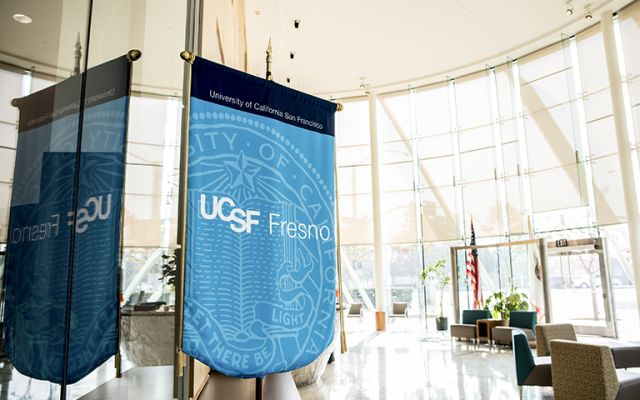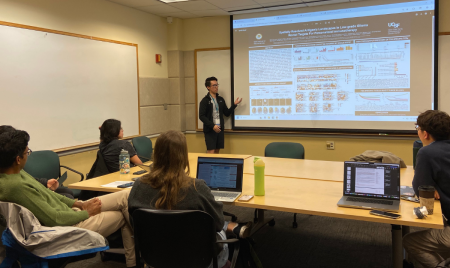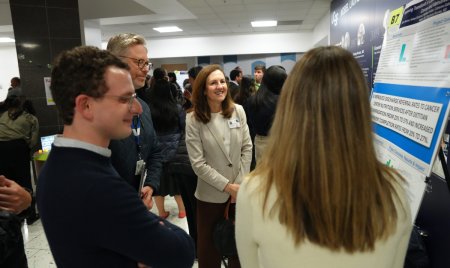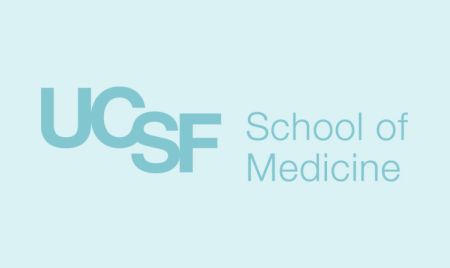News from the Valley: UCSF Fresno Education Symposium

UCSF Fresno campus
UCSF Fresno celebrated our 4th annual UCSF Fresno Education Symposium and this year's keynote speaker was the AME’s Anda Kuo, MD. Dr. Kuo is currently the Co-Lead of the UCSF Child Health Equity Institute and the Founding Director of the UCSF Pediatric Leadership for the Underserved (PLUS Residency Program). She is also the co-founder of a statewide advocacy collaborative consisting of 14 pediatric residency training programs to improve child health within the state of California. Given her interests and expertise, she was the perfect person to address our faculty and learners about the importance of educating future physicians to address the root causes of poor health. After spending our morning taking a deep dive into Diversity, Equity, and Inclusion, as part of the AME’s annual site visit, we then spent our afternoon discussing this topic further as we looked at ways to integrate social medicine, community partnerships, and physician advocacy and leadership into our health professional training programs.
Immediately following Anda’s engaging talk, we had a panel discussion on how Community-Engaged Medical Education is already being carried out in our medical community. Included in the panel was our fellow UCSF Fresno AME member Ivan Gomez, MD and two of our San Joaquin Valley Prime 3rd year medical students, Tyler Carcamo and Enid Picart.
Also serving on the panel:
- Mary Renner (Director, Central Valley Health Network)
- Kristian House (Communication Coordinator, Fresno Community Health Improvement Partnership)
- David Luchini (Assistant Director, Fresno County Department of Public Health)
- Rosa Manzo (Associate Director, UC Merced Center for Medical Education and Health Sciences)
- Kelly Colwell-Walker (Fresno high school teacher, who works with our pediatric residents and faculty)
Together, our panel members shared what they felt were the benefits of community engagement in medical education and what they viewed as challenges they have incurred in trying to integrate community engagement into medical education. Tyler shared how it felt to be a medical student on this panel, “In the simplest of terms, I felt great. I was empowered and honored to be considered a “student expert.” It meant a lot. It goes to show that people recognize your work and the good that you have done for your communities. Like the other [panelists] mentioned, it is something that makes our experience in medicine more profound.”
Following the Teach for UCSF Workshop on Challenges in Clinical Teaching, the last session of the afternoon was poster presentations, with 22 posters presented overall. This session was our first attempt at using digital poster presentations with moderators, and it felt like people were interacting with each other.
The presenters ranged from high school students, medical students, residents, and faculty.
The poster topics were engaging and just as varied:
- Medical students presented on the use of hip hop music, PhotoVoice, and social media to engage adolescents in their health
- High school students presented on how they partnered with pediatric residents to amplify teen voices and become change agents for their community
- Residents and faculty presented on a variety of topics from integrating comics into an ethics course, applying foundational science into the clinical setting, utilizing mobile apps for patients with lupus, and looking at the impact of Mindfulness intervention on burnout, stress, and satisfaction.
It has been both interesting and exciting to watch our annual Education Symposium grow in scope and complexity over the last four years. I wonder what advancements the next year will bring.









